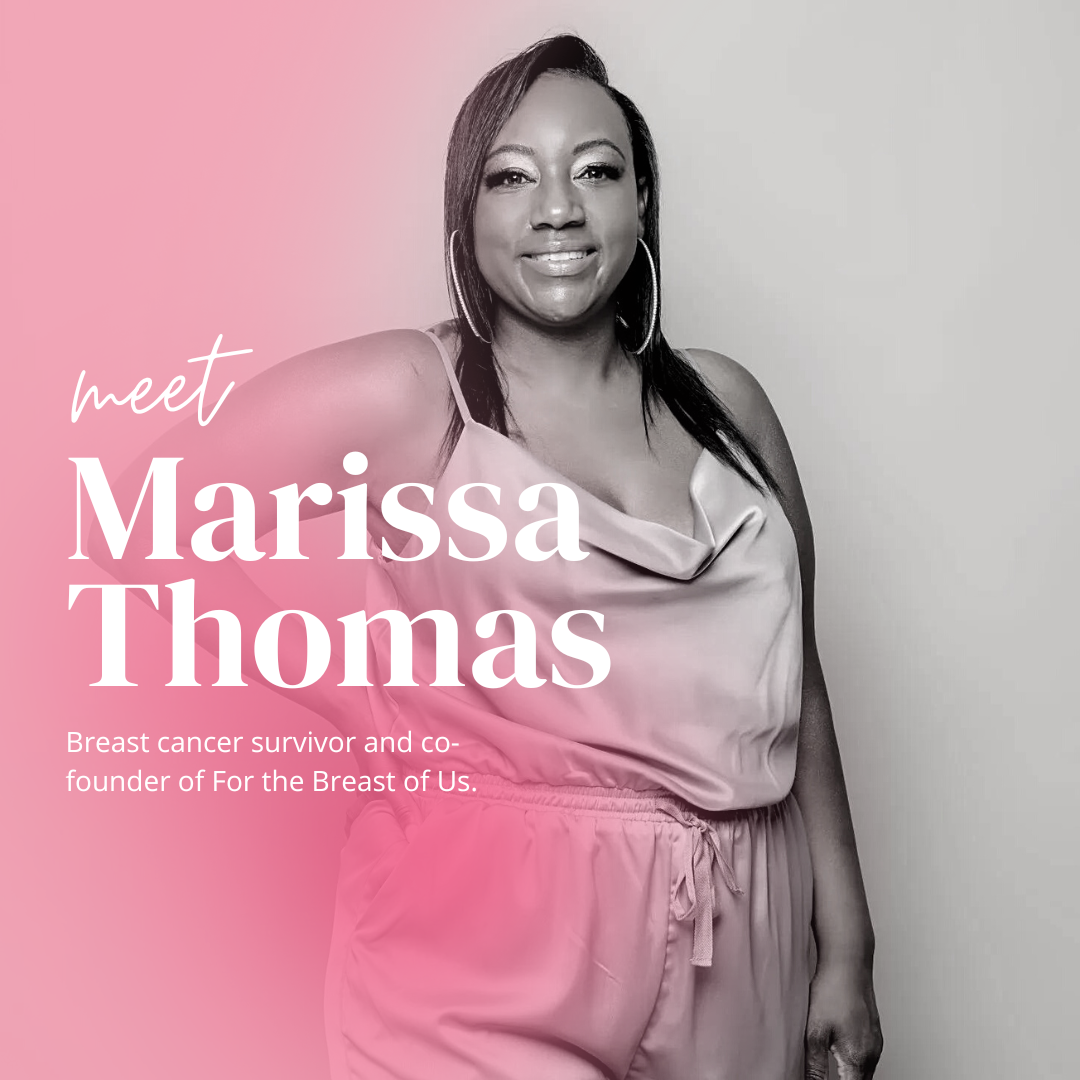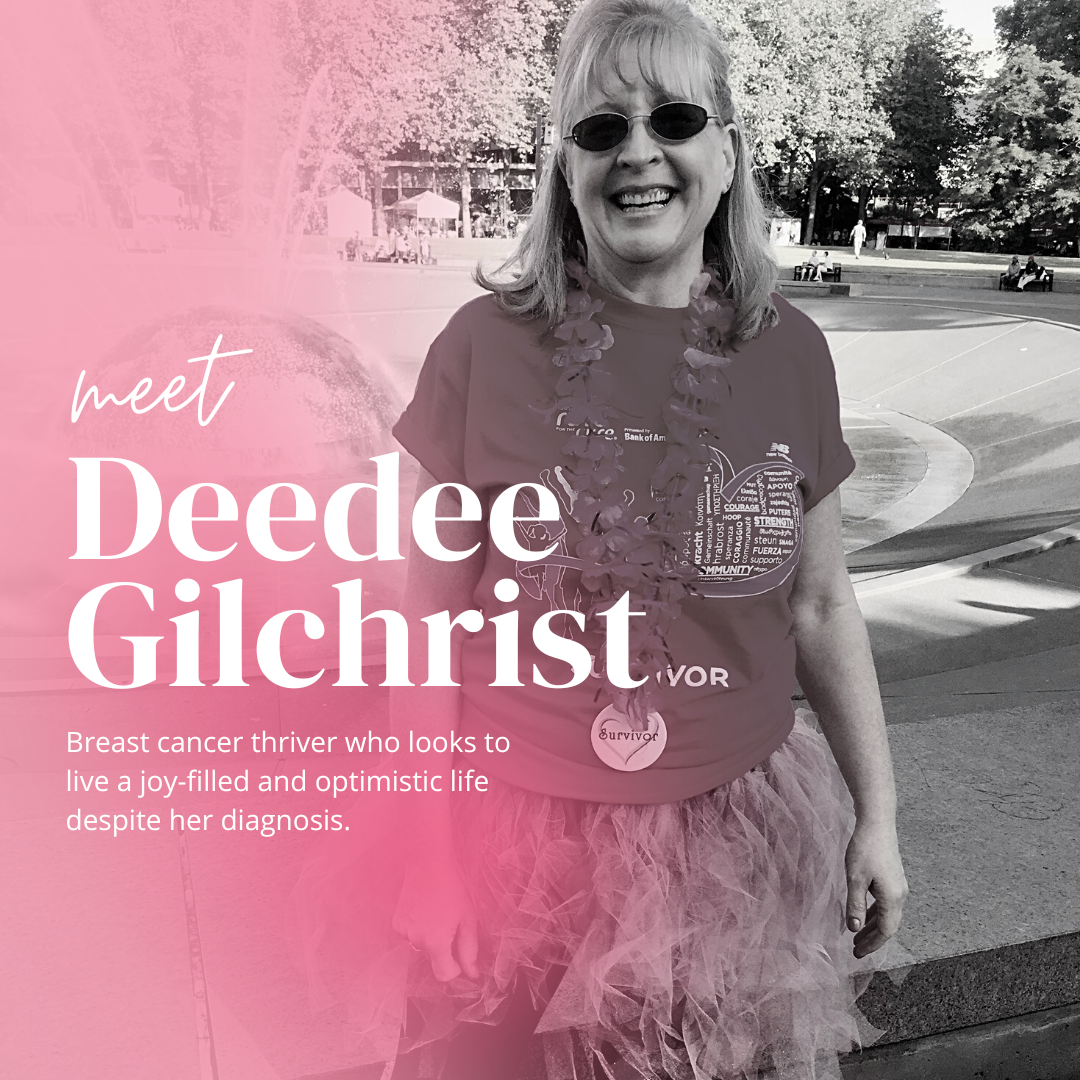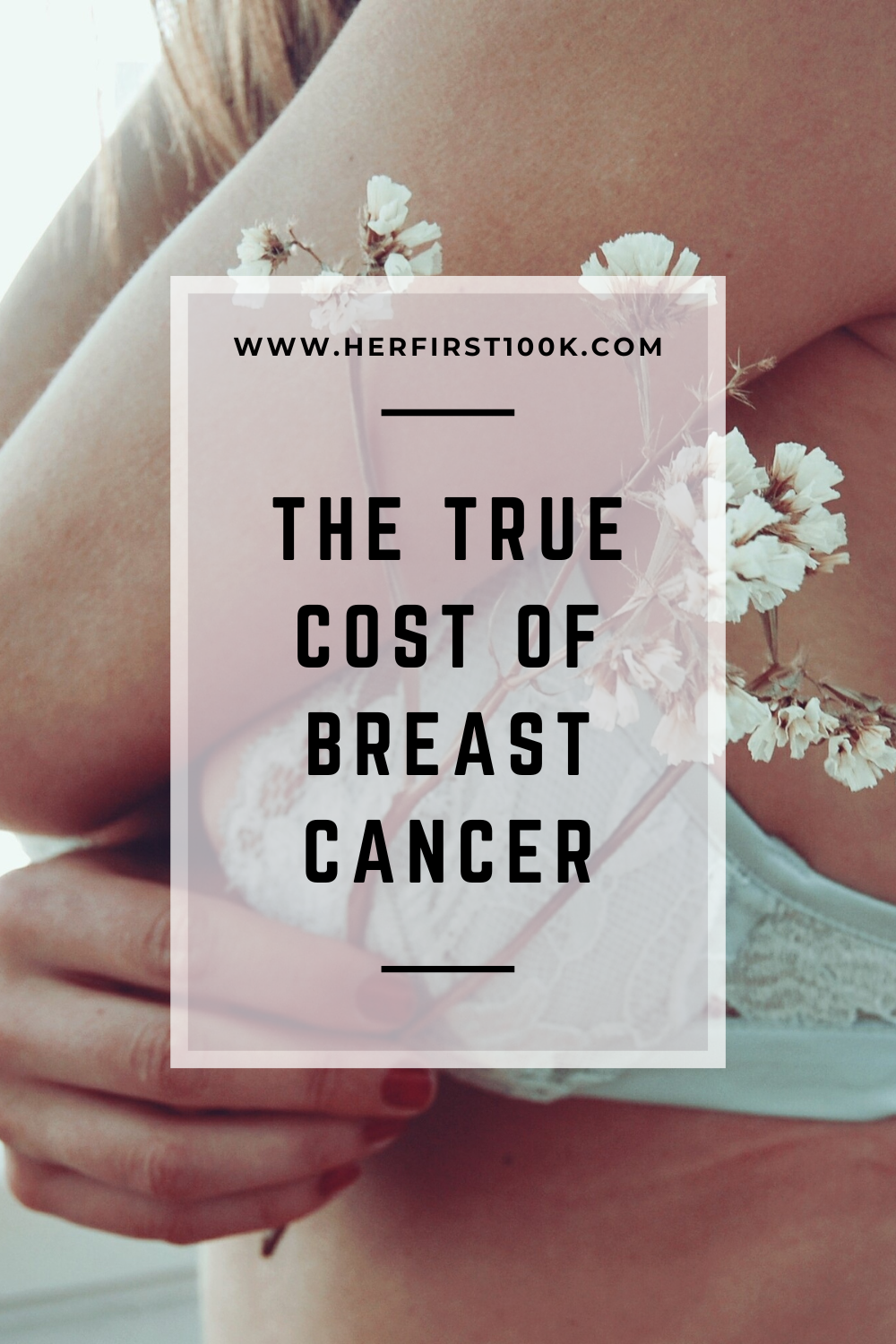The following article may contain affiliate links or sponsored content. This doesn’t cost you anything, and shopping or using our affiliate partners is a way to support our mission. I will never work with a brand or showcase a product that I don’t personally use or believe in.
Breast cancer is the most common cancer in women – so common, in fact, that one in eight women will develop breast cancer in their lifetime.
Those odds mean that even if you yourself never fight breast cancer, at some point in your life you will know someone who will.
Now we all know the toll that breast cancer takes on the body, but what is far less discussed is the toll breast cancer can take on the finances and careers of its fighters and survivors – a toll so significant that it has earned its own term: financial toxicity.
So, what is financial toxicity? Financial toxicity is the financial and emotional costs associated with cancer treatments, and those associated with breast cancer can be particularly expensive – especially for those who are uninsured or underinsured.
Today we are sharing three personal stories of women who have lived or are living with breast cancer in order to examine how breast cancer and financial toxicity affects their lives, careers, and finances.
Listen to episode 47 of the Financial Feminist podcast to hear more about the cost of breast cancer from our three guests, also featuring expert insight from oncologist Dr. Stephanie Graff.
Meet our breast cancer fighters, Marissa, Paige, and Deedee.
Marissa Thomas
As a Woman of Color diagnosed at the early age of 35, Marissa Thomas CoFounded “For the Breast of Us” in May 2019 with fellow breast cancer survivor Jasmine Souers to provide women of color with a resource tailored to us and personal accounts expressed by us.
Diagnosed in November 2015, Marissa turned to social media as a way to connect with other women and find stories similar to hers in hopes of making the journey easier. Marissa rarely sugar coats anything, and breast cancer definitely was not an option. Being a private person, it was hard for Marissa to face the realities and harshness of breast cancer, all while trying to remain positive for those around her. At the urging of a close friend, and fellow breast cancer survivor Cristina, Marissa finally opened up publicly showing not only the beauty but the rawness that comes with breast cancer.
Focusing primarily on women of color, Marissa’s passion going forward is to help those by educating them on navigating the healthcare system and defining survivorship after a cancer diagnosis and, helping them realize that they can “continue living your best life, regardless of the circumstance.”
Marissa holds a BS in Healthcare Administration, serves on the board of Living Beyond Breast Cancer, and is also a certified Living Beyond Breast Cancer Young Advocate. When she isn’t advocating for her fellow breast cancer baddies, she enjoys spending time with her son Siaire, family/friends, and traveling.
Paige More
Paige More (she/her) is a co-founder of The Breasties, a 4x Emmy award winning TV producer, an activist for women’s health and describes herself as everybody’s new breast friend.
In 2017, Paige opted to have a preventative double mastectomy after discovering she carries the BRCA1 gene mutation. After feeling alone during her entire decision making process, Paige decided to start sharing her story on Instagram. After building a community online, she decided to start putting together free events for those who have been affected by cancer and the Breasties was born. As chief visionary officer, Paige heads the WAHTMM weekly newsletter and creates impactful ways for the community to connect.
Deedee Gilchrist
DeeDee Gilchrist of Renton, Washington is a prior breast cancer survivor, currently living with metastatic breast cancer. DeeDee was first diagnosed in 2013 and then again in 2020. DeeDee is beyond thankful for the care she’s received at Valley Medical and Swedish Medical, and has immense gratitude for her team supporting her along the way. Throughout her experience, DeeDee has remained positive and finds joy in gardening and spending time with her family and friends.
Breast cancer can affect women at any age — it’s never too early to start routine self-checks, and it is recommended that women over the age of 40 receive a mammogram every few years for early detection.
“How did breast cancer affect your finances and career? Was there any financial aspect of breast cancer that you weren’t expecting?”*
*Note: our guests’ responses have been slightly edited for clarity.
Marissa:
Working in healthcare, I had helped tons of patients navigate billing and medical expenses, but even with my professional experience, I was not prepared for the financial side of fighting breast cancer.
I currently have to get alternating mammograms and MRI’s every six months – even with a low deductible, that treatment is undeniably expensive. But what really adds up are the fertility treatments – treatments that I didn’t even have on my radar when I was first diagnosed.
If you are diagnosed with breast cancer when you are young, your doctors will likely recommend that you do some sort of fertility treatment like freezing your eggs or creating embryos before you start your cancer treatment. This is because chemo treatments can cause early menopause in women, and they may never get their period back even if they are in remission.
Because of this risk, many breast cancer patients will do fertility treatments so that they can increase their chances of getting pregnant after treatment. This is of course an incredibly tedious and expensive process, and it is unfortunately not always covered by insurance.
These treatments, exams, and medications are costly, and they can be especially expensive for women of color who are more likely to be uninsured/underinsured or have their symptoms dismissed or misdiagnosed by their healthcare providers.
Paige:
I think there’s so many financial implications that come with this, and I have to admit that I’m coming from a place of privilege, and I want to acknowledge that when we talk about this because I know that everybody’s situation is different.
First and foremost, I’m extremely fortunate that I have insurance, and that really played into my decision to have my preventative bilateral mastectomy at 24 years old. When I was going through this decision, I thought to myself, “I have insurance. I have a stable job. I have an incredibly supportive partner, friends, family surrounding me who could come help me and take care of me. I might not be super financially stable yet, but these other factors make me comfortable choosing to do this now.”
What I didn’t realize at the time, though, was that because I wasn’t super financially stable and because I didn’t get paid time off for my recovery, I would feel a lot of stress about how quickly I needed to go back to work.
Sure, my doctors were telling me that I should take at least four weeks off for recovery, but I wasn’t sure if I could financially afford to do that. This became a huge emotional, financial, and physical stressor during my recovery, and it was a lot to handle in addition to my already very stressful major surgery.
Additionally, I didn’t realize how much travel would be involved in my treatment plan – and those travel costs added up fast. Many breast cancer patients have to travel for surgeries which means flights, rental cars, Airbnb’s or hotels, food along the way…the list of expenses goes on and on.
It is a huge financial burden for many in the breast cancer community. It’s really hard for so many people. I think that when you say, “Insurance covered my breast cancer surgery,” which is a privilege and something that is appreciated, it is only one small aspect of the total cost.
Deedee:
The first time I was diagnosed, we caught it early and it was a very non-aggressive type. I had a bilateral mastectomy and was off work for a little over a month after my surgery. Financially, my insurance company covered the bulk of it. Sure, there were the normal out of pocket expenses and my husband had to also take time off work to take care of me and my daughter – but overall, the finances for that one was pretty basic.
But the second time I was diagnosed was a completely different story. This one was a very aggressive form of cancer so the costs that went along with fighting it were much higher.
Even now, two years later, my continued treatment is very expensive. I have monthly medications. My husband and I have to regularly take time off work for checkups and appointments. I get shots every four weeks…there are a lot of things you don’t think about that end up costing a lot of money even long after you are in active treatment.
One of the medications I’m on is about $11,000 a month. Thank goodness I have insurance, but if you don’t, some of these costs are beyond crazy. Before getting diagnosed with breast cancer, I never thought just getting your monthly medications – essential medications – could be so expensive.
What resources or advice do you have for others navigating their own breast cancer journey?
Marissa:
While all women are at risk of a breast cancer diagnosis, due to systemic inequality, women of color are less likely to be diagnosed early, leading to diagnosis at later, more critical stages.
During my treatment, I really recognized a lack of support for women of color within the breast cancer community, and so I co-founded For the Breast of Us with my friend, Jasmine Souers. Our organization helps connect women of color who are navigating a cancer diagnosis by providing them with valuable resources, a sense of community, and opportunities for advocacy.
I also highly recommend Living Beyond Breast Cancer – a non-profit organization that offers a lot of really great financial resources for women with breast cancer. They have a really good advocacy program as well, and I just love the work that they’re doing.
As for advice, I think my cancer diagnosis changed the way that I view the world in terms of tomorrow not being promised to any of us. So I just encourage everyone to just live life day to day, doing the things that you want to do without having any regret.
Paige:
I encourage anyone who is navigating their breast cancer journey to please lean on your medical team to advocate for you if you feel like you can not advocate for yourself when it comes to getting things covered by insurance.
Something I didn’t realize is that some hospitals do have that for you – they offer people on their team to provide someone that can help you navigate that if you don’t know how to navigate it yourself, because it can be overwhelming to deal with the cost all by yourself.
Additionally, something I’m really passionate about is empowering Breasties to know their worth. When it comes to sharing your story, you deserve to be paid to share your story. Oftentimes, brands, people, organizations, will ask you to share your story for free…I don’t think that people know that that’s pink washing – that’s exploiting you and your story for your own personal gain and profit. I think that so often people don’t realize the emotional toll that has on us to share our stories.
Our voices matter. They are important, and our stories need to be told, but you also deserve to get paid for your time, for your story, and you are worth it.
I co-founded the Breasties, a non-profit organization that creates community for survivors, previvors, thrivers, and carevivors, impacted by breast and gynecologic cancers. We empower through connections, free events, trusted resources, and funds for researching metastatic breast cancer. So however breast cancers affects your life, I would encourage you to check us out and join this community.
Also if you’re reading this, please join the Love Research Army. It is an incredible resource for researchers, and many of the studies are remote – which is incredible – so you don’t even have to go in person. Anyone can join with or without a breast cancer diagnosis, and your participation can have a major impact on breast cancer and finding a cure for all.
Deedee:
I often hear people say, “Oh yeah, I’m due for a mammogram, but maybe I’ll do it next month.” You’ve got to do it religiously – that’s your best option to find these things early and be able to take care of them as quickly as possible.
Now as much as it is a horrible disease – and believe me, it is a horrible disease – I want people to know that they can survive it.
You can live with breast cancer — I’m doing it right now. It’s not the end of the world. You have to stay strong and do what needs to be done. Look into everything; look into all the treatments. Figure out what works best for you and do it.
Want more information about the various costs associated with breast cancer as well as treatment options and how to advocate for your health with your doctors? Listen to episode 47 of the Financial Feminist podcast in which our three guests are joined by oncologist Dr. Stephanie Graff as we continue to explore the various ways breast cancer affects the lives and finances of women everywhere.








